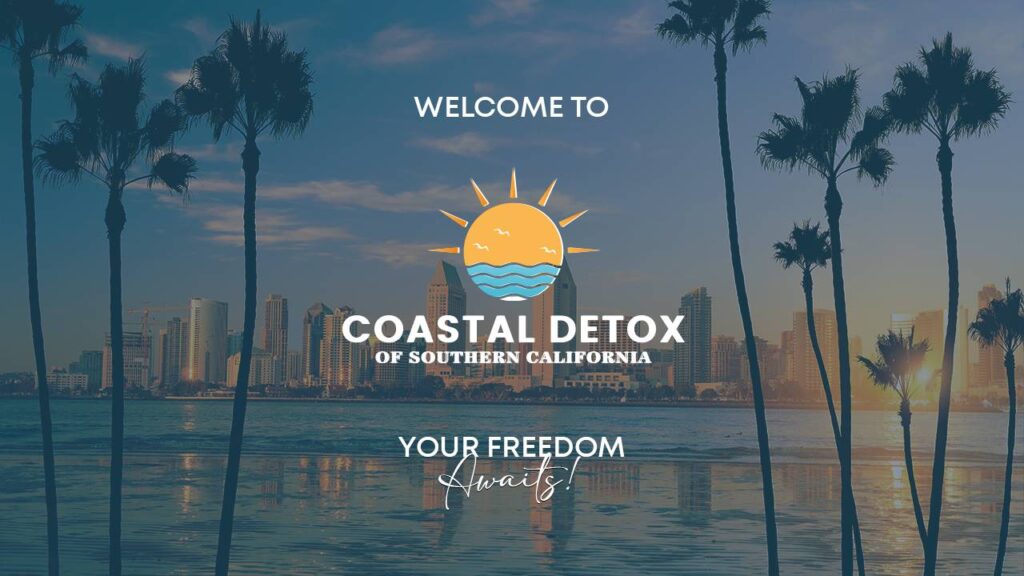When someone decides to seek help for addiction, the treatment process can feel overwhelming. Two terms that often come up early in this journey are “detox” and “rehab,” but many people don’t understand how these programs differ or why both might be necessary for lasting recovery.
If you’re considering treatment options in Southern California, understanding these differences can help you make informed decisions about your recovery journey.
Understanding Detoxification
Detox is the first step in addiction treatment, focusing on safely removing substances from the body. This medical process addresses the immediate physical effects of stopping drug or alcohol use. During detox, healthcare professionals monitor patients around the clock, managing withdrawal symptoms that can range from uncomfortable to potentially dangerous.
The detox process typically lasts anywhere from a few days to several weeks, depending on the substance involved, how long someone has been using, and their overall health. According to the National Institute on Drug Abuse (NIDA), medical staff may use medications to ease withdrawal symptoms and ensure patient safety throughout this critical phase.
Think of detox as clearing the fog so you can see the road ahead. It’s essential groundwork, but it’s not the complete journey to recovery. At Coastal Detox of Southern California, our medical team specializes in providing safe, comfortable detoxification services with 24/7 supervision.
What Rehabilitation Encompasses
Rehabilitation, or rehab, is a comprehensive treatment program that addresses the psychological, emotional, and behavioral aspects of addiction. While detox handles the physical dependency, rehab tackles the underlying reasons why someone turned to substances in the first place.
Rehab programs can last anywhere from 30 days to several months, and they come in different formats. Inpatient programs require staying at a treatment facility, while outpatient programs allow people to live at home while attending regular therapy sessions and group meetings. The Substance Abuse and Mental Health Services Administration (SAMHSA) provides resources for finding appropriate treatment programs based on individual needs.
During rehab, patients work with counselors and therapists to develop coping strategies, understand their triggers, and build the skills needed for long-term sobriety. Group therapy sessions connect people with others facing similar challenges, creating a supportive community that extends beyond treatment. Research from Harvard Medical School shows that comprehensive rehabilitation programs significantly improve long-term recovery outcomes.
Key Differences at a Glance
Detox focuses on:
- Physical withdrawal from substances
- Medical supervision and safety
- Short-term stabilization
- Preparing the body for further treatment
Rehab focuses on:
- Psychological and emotional healing
- Learning coping mechanisms
- Addressing root causes of addiction
- Building long-term recovery skills
Why Both Matter
Attempting to skip detox and jump straight into rehab can be dangerous, especially for people who have been using substances heavily or for extended periods. The body needs time to adjust and heal before the mind can fully engage in the therapeutic work of rehabilitation.
On the flip side, completing detox without following up with rehab significantly increases the risk of relapse. Studies published by the National Center for Biotechnology Information show that detox addresses the physical aspect of addiction, but without tackling the psychological components, most people find themselves back where they started within weeks or months.
This is why our comprehensive approach at Coastal Detox focuses on creating seamless transitions from detoxification to ongoing rehabilitation services.
Making the Right Choice for You
Every person’s addiction story is different, which means treatment needs vary too. Some people might need a brief detox followed by intensive inpatient rehab, while others might transition from detox to outpatient programs that allow them to maintain work or family responsibilities.
The key is working with qualified professionals who can assess your specific situation and recommend the most appropriate level of care. The Centers for Disease Control and Prevention (CDC) emphasizes the importance of evidence-based treatment approaches tailored to individual needs.
Don’t let fear or uncertainty keep you from taking that first step – both detox and rehab programs are designed to meet you where you are and help you move forward safely. Our experienced team understands that choosing treatment is a big decision, and we’re here to guide you through the process.
Recovery is possible, and understanding these treatment options is the first step toward reclaiming your life. Whether you’re considering treatment for yourself or supporting a loved one, remember that seeking help takes courage, and every journey toward sobriety deserves respect and professional support.
Ready to take the next step? Contact Coastal Detox of Southern California today to speak with one of our admissions specialists about your treatment options. Our compassionate staff is available 24/7 to answer your questions and help you begin your journey to recovery.
Frequently Asked Questions
How long does detox typically take?
Detox duration varies significantly based on several factors, including the type of substance, length of use, and individual health conditions. Alcohol detox usually lasts 3-7 days, while opioid detox can take 7-10 days. Benzodiazepine withdrawal may require weeks of medical supervision due to the potential for dangerous complications. Your medical team will monitor your progress and adjust the timeline as needed.
Can I detox at home instead of at a facility?
While it might seem more comfortable to detox at home, it can be extremely dangerous, especially for alcohol, benzodiazepines, or opioids. Medical complications during withdrawal can be life-threatening, and having 24/7 medical supervision significantly improves safety and comfort. Professional detox facilities also have medications available to ease withdrawal symptoms that aren’t accessible at home.
What’s the difference between inpatient and outpatient rehab?
Inpatient rehab requires staying at a treatment facility for 30-90 days, providing intensive therapy and around-the-clock support. This option works best for people with severe addictions or those who need to remove themselves from triggering environments. Outpatient rehab allows you to live at home while attending regular therapy sessions, making it suitable for people with strong support systems and less severe addiction issues.
How much does treatment cost?
Treatment costs vary widely based on the type of program, length of stay, and location. Many insurance plans now cover addiction treatment thanks to the Mental Health Parity Act. Our team can help verify your insurance benefits and explore payment options to make treatment accessible.
Will I be able to work during outpatient treatment?
Many outpatient programs are designed to accommodate work schedules, with evening or weekend sessions available. However, early recovery requires significant time and energy, so some people choose to take time off work or arrange reduced hours. Your treatment team can help you create a plan that balances recovery needs with other responsibilities.
What happens if I relapse after treatment?
Relapse doesn’t mean treatment failed – it’s often part of the recovery process. If you relapse, the most important thing is to get back into treatment as soon as possible. Many people require multiple episodes of care to achieve lasting sobriety, and each attempt builds on previous learning experiences.
How do I know if I need detox or can go straight to rehab?
This decision should always be made with medical professionals who can assess your specific situation. Generally, if you’ve been using substances regularly and experience withdrawal symptoms when you stop, you’ll likely need medical detox first. Never attempt to make this determination on your own – professional assessment ensures your safety.
Can family members visit during treatment?
Most treatment programs encourage family involvement and offer designated visiting times. Family therapy sessions are often part of the treatment plan, helping repair relationships and build support systems for long-term recovery. Each facility has different policies, so check with your specific program about their family participation options.









